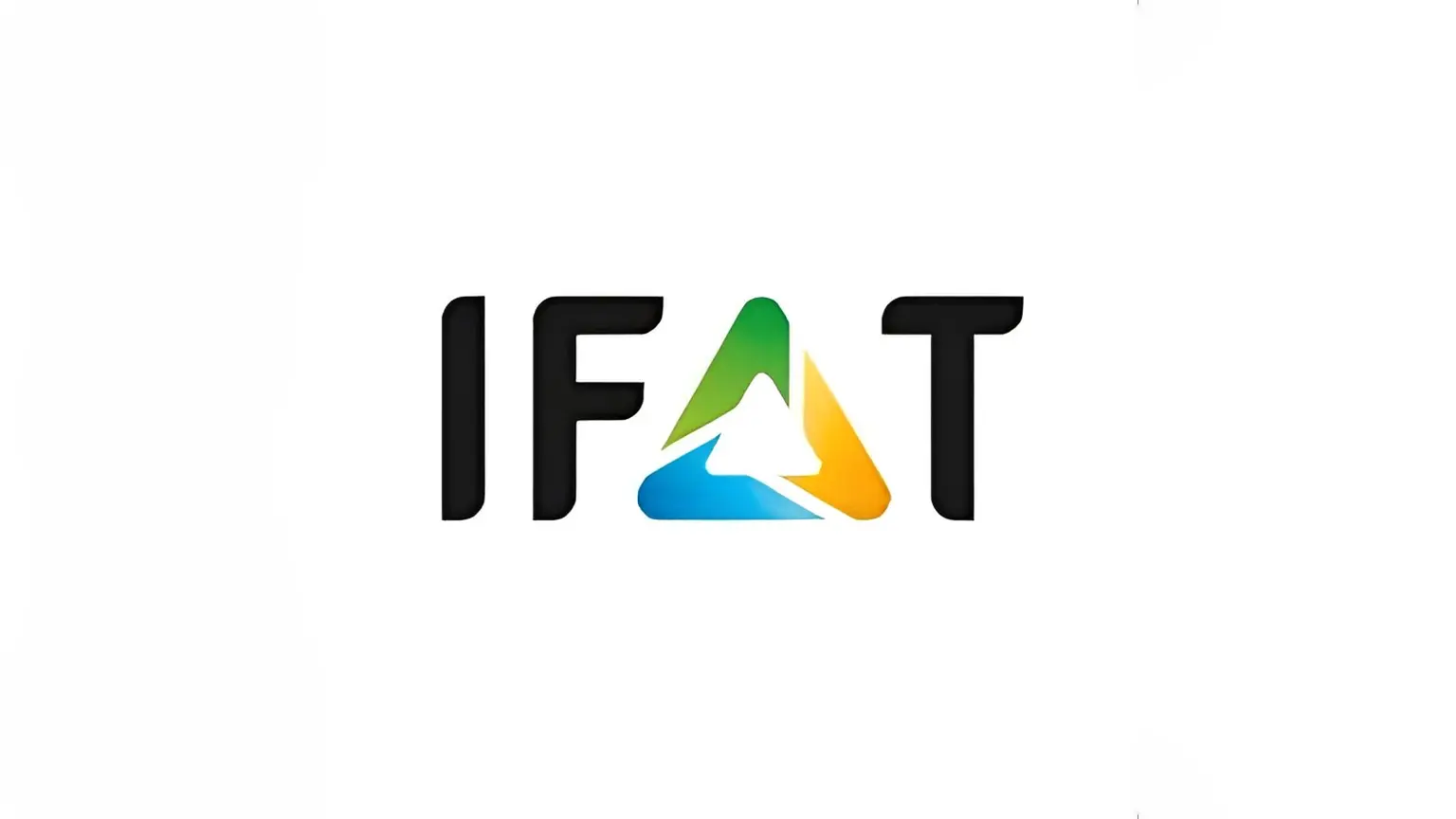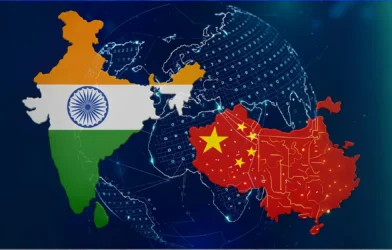Author: Aditya Pareek | EQMint | Opinion article
Mumbai — The three-day environmental technology extravaganza, IFAT India 2025, held from 14th to 16th October at the Bombay Exhibition Centre (NESCO), Goregaon, has officially concluded — and EQMint was on the ground capturing every moment.
As India’s leading trade fair for water, waste, and sustainability solutions, IFAT India 2025 drew over 30,000 visitors and 500+ exhibitors from 25 countries. Over the course of three vibrant days, EQMint interacted with more than 50 exhibitors, gaining firsthand insights into groundbreaking technologies, policy shifts, and India’s accelerating green transformation.
A Global Showcase of Environmental Excellence
Walking through the bustling exhibition halls, it was evident that India’s environmental technology sector has entered a new era of innovation and scale. From towering waste-processing machines to sleek digital dashboards tracking water purity in real-time, IFAT India 2025 was a living laboratory of sustainability in motion.
Global participation was one of the defining features this year. The event featured international pavilions from Germany, Canada, the Netherlands, South Korea, and Australia, each bringing a wealth of clean-tech expertise. Indian startups and public-sector innovators stood shoulder to shoulder with multinational corporations, proving that the sustainability revolution is both global and local.
EQMint’s editorial team witnessed a strong collaboration spirit between Indian and foreign exhibitors. The Germany Pavilion, for instance, showcased circular economy solutions, while Canada’s delegation emphasized water reuse and treatment technologies tailored for Indian cities.
EQMint Exclusive: Voices from the Exhibition Floor
During IFAT India 2025, EQMint spoke with more than 50 exhibitors. Below are highlights from conversations with some of the foremost names on display: AgroMorph Technosolutions Pvt Ltd, Labtech Electronics Pvt Ltd, SIDSA Environmental Pvt Ltd, Benchmark Measurement Solutions, Thermax Ltd, Sintex, and Taprogge.
- AgroMorph Technosolutions Pvt Ltd — Based in Navi Mumbai, this biotech-driven startup focuses on algae-based wastewater treatment and circular waste solutions. Its founder, Dr. Akanksha Agarwal, shared with EQMint that the company piloted a 2 KLD algae reactor treating domestic wastewater in a Maharashtra district, with plans to scale to industrial effluents. She remarked, “IFAT India 2025 allowed us to close MoUs with two municipal bodies and attract interest from three state water utilities.”
- Labtech Electronics Pvt Ltd — A specialist in analytical instrumentation and process control systems, Labtech showcased its modular sensors for water quality, pH, dissolved oxygen, and conductivity monitoring. Its Technical Director told EQMint, “We received over 250 inbound queries in three days — many from industrial effluent treatment plants and municipal bodies exploring upgrades to real-time monitoring.”
- SIDSA Environmental Pvt Ltd — Known for its environmental consultancy and pollution control systems, SIDSA presented turnkey systems for industrial wastewater and gas emissions control. Their project head explained to EQMint, “India’s tightening environmental norms are driving demand. IFAT gave us direct access to decision makers in chemical, pharma, and textile sectors.”
- Benchmark Measurement Solutions — A precision instrument provider, Benchmark Measurement Solutions demonstrated its cutting-edge flow meters, level transmitters, and data logging systems. The CEO told EQMint, “Many users told us our instruments’ stability and accuracy over wider ranges is a differentiator. At IFAT, we secured pilot contracts with two major utilities.”
- Thermax Ltd — The energy and environment giant showcased a variety of large-scale water and waste solutions, including centralized effluent treatment plants (ETPs), sludge management systems, and heat recovery units. Their environment division lead told EQMint, “We are seeing increasing traction in integrated environmental packages. IFAT was crucial in aligning with state governments and public utilities.”
- Sintex — Best known for plastics and water storage solutions, Sintex leveraged its brand to exhibit modular water treatment enclosures and prefabricated treatment plants. Their business development head told EQMint, “We want to integrate Sintex’s fabrication strength with environmental tech to deliver plug-and-play units for smaller towns and industries.”
- Taprogge — A global company specializing in expert filtration and cleaning systems (notably for cooling water and condenser systems), Taprogge displayed self-cleaning strainers and filters suited for industrial and thermal power plants. Their India head told EQMint, “We are seeing a shift: clients now ask first for automatic cleaning filters to reduce maintenance costs. At IFAT, we discussed 5 potential large orders across power and heavy industry.”
Each exhibitor EQMint spoke with agreed on one thing: the future of India’s environmental industry depends on technology integration, policy support, and local manufacturing.
Conferences, Panels, and Knowledge Exchange
Beyond the exhibition booths, the conference sessions were packed with decision-makers and experts discussing issues that matter most — from waste circularity and decarbonization to digital infrastructure for sustainability.
The Blue Stage highlighted innovations in water and wastewater management, featuring case studies from Indian cities that successfully implemented smart metering and non-revenue water control.
At the Orange Stage, thought leaders debated the role of circular economy policies in reducing landfill dependency. The Green Stage focused on urban sanitation, with municipalities sharing their plans for integrating new technologies in waste collection and treatment.
EQMint also attended a fascinating session by the India IP SME Helpdesk, which educated startups on protecting their intellectual property in the sustainability space.
Key Takeaways: A Turning Point for India’s Green Economy
After covering all three days, EQMint’s analysis points to three defining takeaways from IFAT India 2025:
- India is Ready for Circular Growth: Both private companies and government agencies are moving beyond compliance to collaboration. The focus is now on reuse, resource efficiency, and measurable impact.
- Technology is the Game-Changer: Smart sensors, automation, and digital dashboards dominated the show. From AI waste sorters to data-driven water analytics, the next phase of environmental management is clearly tech-enabled.
- Partnerships Are Key: Every exhibitor EQMint spoke to emphasized the importance of partnerships — between global innovators, local manufacturers, and policymakers. The event became a matchmaking hub for future sustainability projects.
Beyond the Booths: A Sustainable Event for a Sustainable Future
IFAT India itself practiced what it preached. The organizers minimized plastic use, encouraged exhibitors to adopt eco-friendly booth materials, and promoted digital brochures to cut down on paper waste. Recycling stations and smart energy management were visible throughout the venue.
Attendees also praised the efficient logistics, clean layout, and the interactive demonstrations that made complex technologies accessible to both professionals and students.
The Road Ahead
As the lights dimmed on the final evening of 16th October, the message was clear: IFAT India 2025 wasn’t just an exhibition — it was a movement. It reflected how India’s sustainability story is now being written through innovation, collaboration, and purpose.
According to multiple exhibitors EQMint interviewed, the inquiries and partnerships formed during these three days are expected to translate into major projects across smart cities, industrial zones, and rural infrastructure in the coming year.
For EQMint, covering IFAT India 2025 was more than journalism — it was witnessing the making of India’s environmental future, firsthand.
Disclaimer: This article is based on information available from public sources. It has not been reported by EQMint journalists. EQMint has compiled and presented the content for informational purposes only and does not guarantee its accuracy or completeness. Readers are advised to verify details independently before relying on them.









